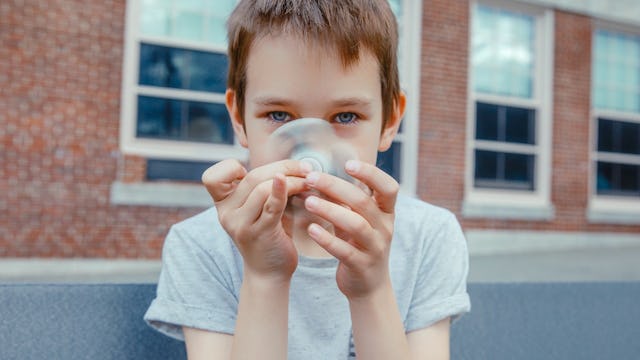10 Things I Wish People Knew About Being A Parent To A Child With Autism

autism: noun. one of many terms to help describe (and explain) my son.
Many of you probably already know April is Autism Awareness Month. It was, ironically enough, last April that we received my son’s “official” (ADOS-approved) diagnosis of ASD. Everywhere I turned there were billboards and commercials and news reports and online propaganda screaming at me Autism! Autism! Autism! It was incredibly overwhelming, but ultimately helpful.
It’s a year later, and I’m still not sure what to make you aware of except that I’m still confused. I can’t tell you which autism organizations are the best to support or which you better stay clear of. I can’t tell you which practices are most efficient or which are a waste of your time.
All I can really make you aware of is that being the parent of a child with autism is hard.
With this intrinsic knowledge, my contribution to Autism Awareness Month is this: to share a little insight to those of you parents without children on the spectrum, to those of you who want to stick by your friends and family even though it can be tough.
This is what you should be aware of:
1. We’re overwhelmed most of the time.
All parents feel overwhelmed. Knowing that, add to the mix diagnoses, IEPs, speech therapy, OT, ABA, physical therapy, social skills classes, dealing with insurance companies, hours on the phone to get on an endless number of waiting lists, and then you’ll know a new level of exhaustion.
2. We cry. A lot.
Tears of joy, tears of frustration, tears of anger. Autism has the uncanny ability to yank emotions out of us and put them on public display.
3. We sometimes get jealous when you talk about your kids.
We’re happy for you. We really are. But sometimes, it’s hard to hear the successes of your kids when we know, deep down, ours can’t experience them. Please keep sharing, but don’t be offended if our enthusiasm isn’t always authentic. Selfish? Maybe. Honest? Yes.
4. We spend a lot of time waiting.
Not just on those waiting lists for therapy. We’re waiting for the next meltdown, for the next bad report, for the interventions to finally start working. We’re waiting for a peace that may never come.
5. We’re afraid.
In fact, we’re terrified. We worry about our children’s future to a near-obsessive level. We fear for their happiness, for the bullying that’s bound to occur, for the unfair hurdles our children are forced to jump over. We’re afraid we aren’t doing enough for our children, that maybe it’s our fault that this has happened and, as a result, our children may not be able to function successfully in this world. We’re afraid because we feel a lack of control.
6. We experience more setbacks than successes.
Most reports from our children’s teachers are negative. They may be laced with a positive spin, but the overarching theme revolves around the struggle. Hearing about how our children are failing to be successful wears us down.
7. We feel very alone.
Yes, we know you’re here for us. Yes, we’ve made new acquaintances and contacts since the diagnosis, but that doesn’t shake the feeling of standing in a hallway, screaming at the top of our lungs, and having no one hear us.
8. We have a lot of pride.
We may be struggling, but most days, we won’t let you know it. We may be frustrated with our children often, but we couldn’t be prouder of the successes they do experience because they’ve had to work that much harder to achieve them.
9. We’re still sad.
Doesn’t matter if the diagnosis was five minutes or five years ago. We still feel sad. For our children. For ourselves. For the situation. We may look okay most days, but we carry that sadness with us.
10. We appreciate you.
The fact that you’re willing to stand by our side, despite all of the above, means you’re pretty special. You provide us with sanity and sanctuary. We are aware of you and your kindness.